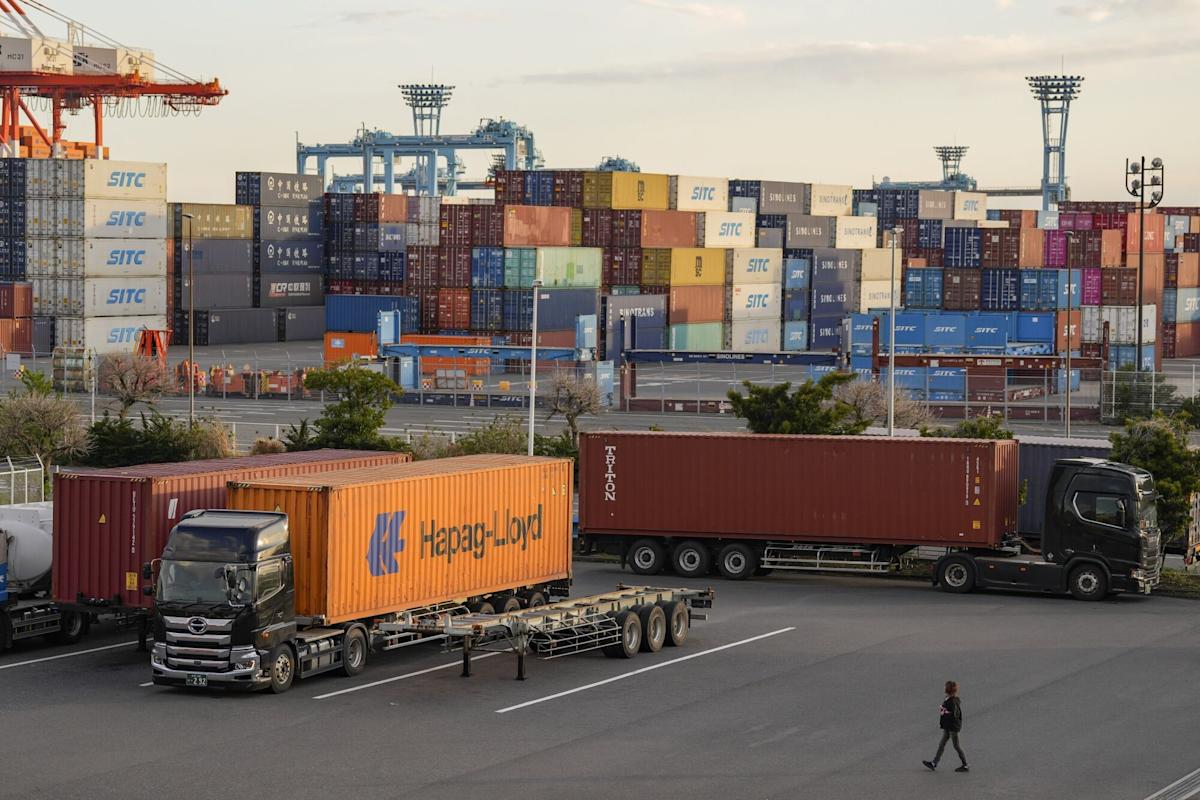A shipping terminal in Yokohama, Japan. Photographer: Toru Hanai/Bloomberg
(Bloomberg) — Japanese imports may face higher tariffs if the country doesn’t fund US President Donald Trump’s investment picks, according to a document fleshing out a $550 billion funding initiative agreed by the two nations.
Trump will choose projects based on recommendations from an investment committee led by US Commerce Secretary Howard Lutnick, according to a memorandum of understanding for the mechanism signed by Lutnick and his Japanese counterpart Ryosei Akazawa in Washington on Thursday.
Most Read from Bloomberg
Lutnick said Friday that tariffs on Japanese goods would go “back up” if the country did not abide by the terms of the agreement — part of a broader trade pact the countries struck in July.
“Let’s say, halfway through and they’ve invested $250 billion, they stop, saying, ‘I don’t want to send you any more money.’ The tariffs, you know, pop right back up,” Lutnick said on Bloomberg Television’s program.
The investment committee will incorporate input from Japan via a separate panel, with investments to be made up to Jan. 19, 2029, the memorandum said, a time frame that coincides with the end of Trump’s presidential term.
“The idea is to build supply chains within the United States,” Akazawa said in Washington on Thursday evening. “Therefore, it is only natural that the US side’s intentions, and more specifically, President Trump’s intentions, are strongly reflected.”
The memorandum provides more details of how Japan will be obligated to supply funds for Trump’s investment choices than has so far been indicated by Japanese officials. Akazawa said there was no change from July in the details agreed.
The investment fund forms part of a trade deal agreed with the US that limits universal duties on Japanese goods and sectoral tariffs on the auto sector to 15%. The Trump administration has included similar funding arrangements in other trade deals too, including the US agreement with South Korea.
While the US-Japan deal was struck on July 22, the auto tariffs had remained at 27.5% while existing duties were still being charged on top of the new tariffs imposed this year. Trump signed an executive order Thursday to lower the duties to 15% and stop the stacking up of tariffs, a move that delivers embattled Japanese Prime Minister Shigeru Ishiba a limited success as he tries to hold on to power in Tokyo amid calls for him to resign.
Story Continues
